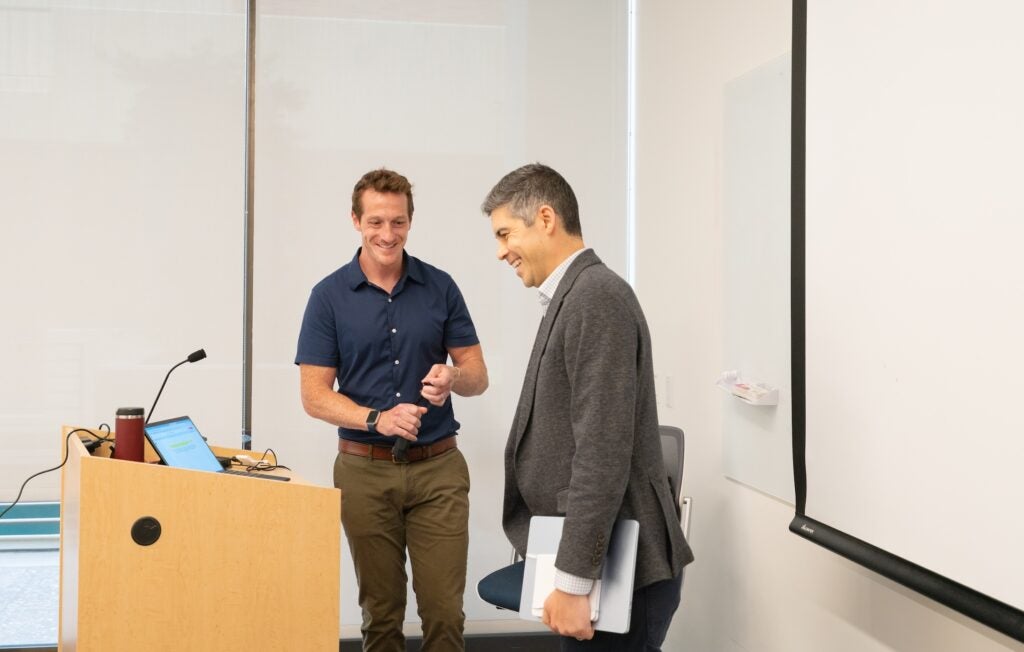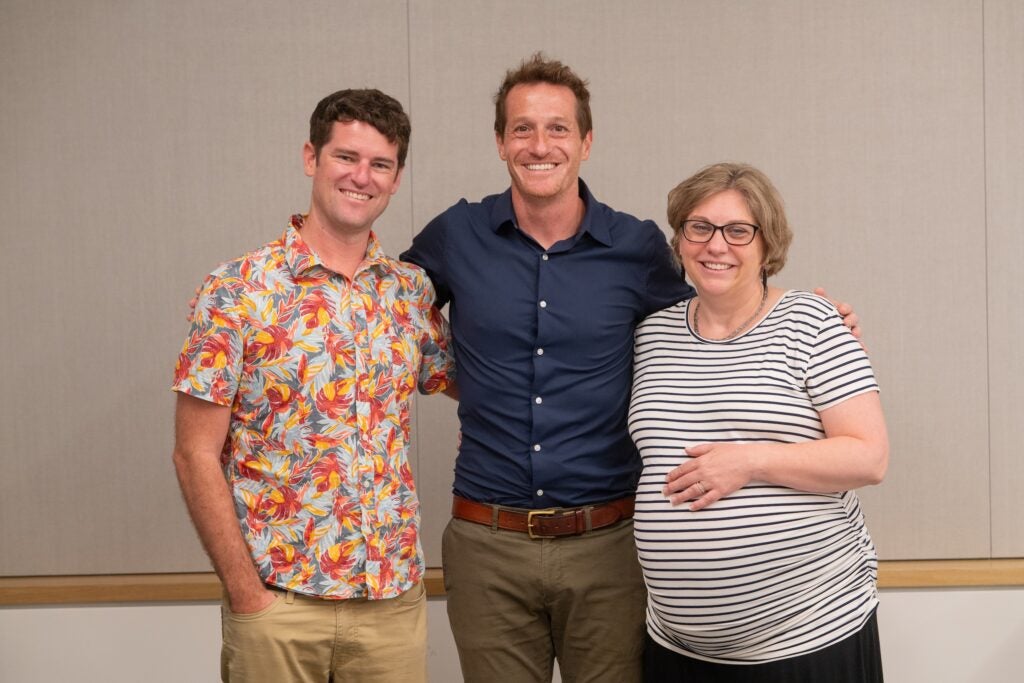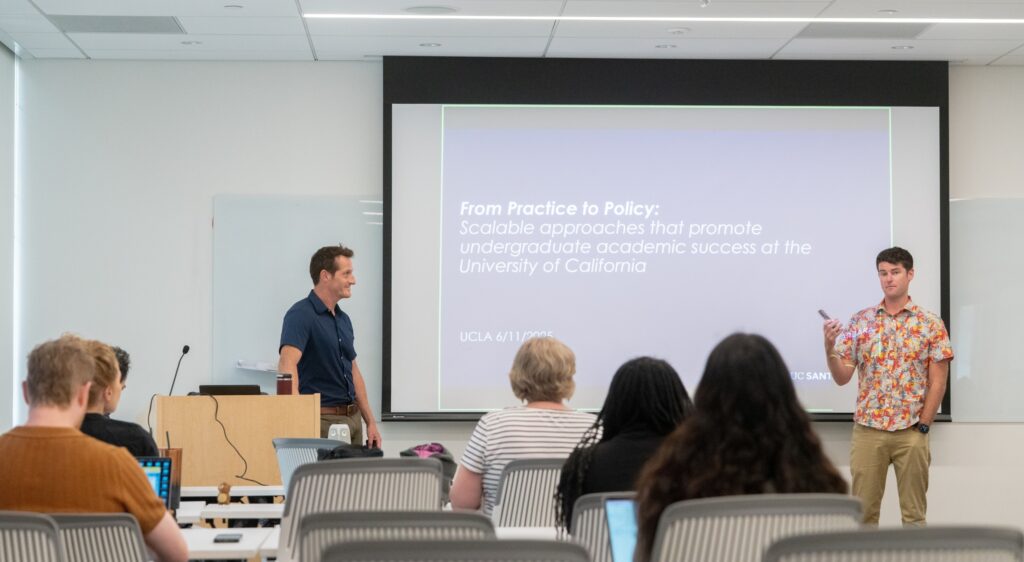The UCLA Teaching and Learning Center (TLC) concluded the academic year’s Educational Innovation and Scholarly Teaching Seminar series with a talk on enhancing student success through both educational research and campus policy changes. While these two interventions can individually offer improvements, their combined efforts can effectively drive educational innovation.
“Education research can enable institutions to identify and respond to academic challenges by constructing, implementing, and assessing novel policies that can affect student outcomes,” explained Mike Wilton, an associate teaching professor in the Department of Molecular, Cellular & Developmental Biology at UC Santa Barbara and associate dean in the Division of Undergraduate Education. His talk, “From Practice to Policy: Scalable Approaches that Promote Undergraduate Success at the UC,” examined two interventions used to retain first-year biology majors at UCSB: a near-peer mentorship program and the adoption of a campuswide retroactive pass/no pass grading option.
Wilton began by sharing his research, which used a randomized controlled trial to study the efficacy of small group mentorship integrated into the first-year biology course sequence. Students worked with an upper-division mentor to acquire academic skills, effective study habits, and familiarize themselves with campus resources to promote future success. The study findings indicated improved academic outcomes for the participating students, who were twice as likely to progress through the course sequence on time.
This peer support model offers support to students at a pivotal time in their educational careers.

“The first year undergraduate experience is a time of great transition and challenge; therefore, there is great opportunity to positively affect each of our students,” he noted.
The talk also examined UCSB’s adoption of a retroactive pass/no pass grading option and its impact on retaining undergraduate students in the College of Letters and Sciences. The policy allows undergraduates to petition to swap failing and/or unsatisfactory grades to a pass/no pass option in the following quarter. Wilton’s analysis found that the policy change sharply decreased the number of students placed on academic notice without negatively impacting student retention or unit progress.
In leveraging an evidence-based approach to enhance student learning outcomes, Wilton’s talk highlighted the mission of the Scholarly Teaching Seminar series to bring top education research to UCLA’s instructional community.
“The TLC hopes to showcase research-based teaching practices to our campus educators and start dialogue around effective teaching innovation,” noted Vice Provost for Teaching and Learning Erin Sanders O’Leary. “It’s exciting to host these scholars to share their advancements in teaching and learning.”
Wilton’s evidence-driven approach throughout the seminar offered a strong example to the attendees, who could see the concrete effects of both programs on student success.
“Dr. Wilton’s talk provided two excellent examples of how data can be used to support the effectiveness of educational programs and policies,” said Melissa Paquette-Smith, associate teaching professor in the UCLA Department of Psychology. “The peer mentorship program that he developed clearly has a tangible impact on first-year students’ success in STEM and seems like a great model that could be beneficial to students at a number of institutions, including UCLA.”
Similarly, Wilton hoped that his presentation would inspire other universities to adopt similar policies to achieve similar increases in student success.
“I hope the evidence I provided in terms of the impacts of near-peer mentorship as well as the adoption of a retroactive pass/no pass policy can be adapted and used across multiple institutions,” he said. “So far, our data indicate both of these approaches are associated with improved student academic outcomes.”
The Educational Innovation and Scholarly Teaching Seminars are planned to resume in the fall quarter with new visiting educational researchers. Visit the series webpage to learn more about upcoming events.

